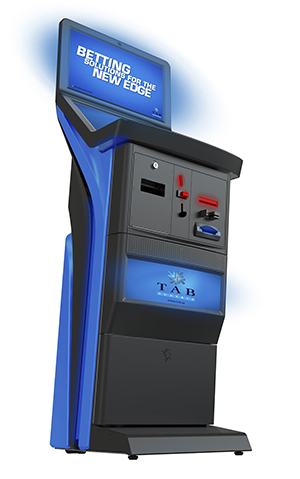Today’s licensed betting providers - both in betting shops, bars and at sports venues - provide an array of betting opportunities and now, given the myriad of options available, are seeking to streamline the wagering process by providing convenient self-service betting terminals.

ALTHOUGH the exact size of the global sports betting market is unknown, given the amount of wagers placed “off the books,” the legal market is nonetheless considered to run into hundreds of billions of dollars. The illegal market could be the same again. What this points to, is an incredible appetite for sports betting around the world.
Each jurisdiction has its own rules governing sports betting, ranging from total prohibition to complete acceptance. The UK, for example, has one of the most liberal sets of gaming regulations, creating an environment in which sports betting has flourished, both in the land-based and online spheres.
Online sports betting has revolutionised wagering, with the majority of bookmakers throughout regulated markets ploughing huge resources into growing their digital presence. Bookmakers appear on professional sports stars’ uniforms, the advertising hoardings around the venue and, in a recent development that has divided opinion, now present live, in-play odds during commercial breaks. The growth of online and mobile betting and the technologies they involve have, it is widely suggested, helped to capture a new customer base of younger, tech-savvy players.
Bridging the gap between over-the-counter wagering and mobile betting are self-service betting terminals, a new generation of kiosk that provides a straightforward and efficient way of placing bets on sporting events. This type of equipment has taken off in multiple markets around the world. In the UK, major high street bookmaker Ladbrokes recently noted that it had installed an additional 350 self-service betting terminals, taking the total number employed across its estate to 1,750.
“SSBTs continue to enhance our drive for more football business with over 70 per cent of their overall staking derived from football,” the company said. In Belgium, where it also operates betting locations, it rolled out 420 of the terminals ahead of this summer’s Football World Cup.
Such terminals can also increasingly be found on site at sporting venues. In August, Sportech announced that it would be delivering a range of its new technologies to the Hawthorne Race Course in Stickney, Illinois, for instance. In addition to its Sportech Kiosk for self-service account set-up, funding and cashing, Hawthorne will be Sportech’s first North American customer to receive its next generation self-service wagering terminals.
Read the full article in the September issue of InterGame

